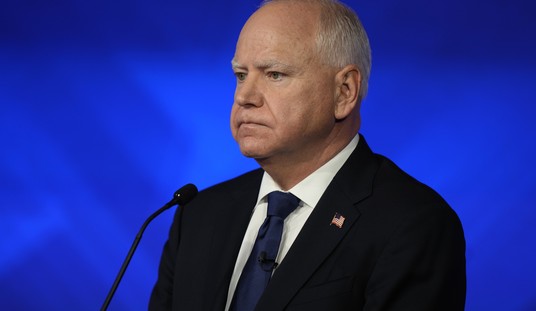What next for Columbia University? After nearly two years of allowing pro-terrorist radicals to run loose on the Ivy League campus, there have recently been encouraging signs that, in the face of major federal funding cuts, Columbia was on the cusp of serious reforms to protect the Jewish members of its student body. However, the sudden decision of the university’s interim president, Katrina Armstrong, to step down without any given reason in favor of a successor, journalist Claire Shipman - who once referred to concerns about antisemitism as “nonsense” - is a worrying sign. Today, Columbia stands at a crossroads - between restorative change and institutional failure.
On October 7, 2023, mere minutes before Hamas terrorists invaded Southern Israel to commit the largest massacre of Jews since the Holocaust, a viciously anti-Israel organization called Columbia Students for Justice in Palestine (SJP) reactivated its long-dormant social media accounts with the message, “We are back!!” SJP, which justifies acts of terrorism against Jews, is a daughter organization of American Muslims for Palestine (AMP), which is currently under federal investigation for ties to Hamas. Simultaneously, SJP and its allies essentially took over the Columbia campus, chanting antisemitic slogans and sparking a nationwide wave of campus antisemitism.
The situation at Columbia got so out of hand that by Spring 2024, a mob carrying Hamas and Hezbollah flags had forced the university to end on-campus classes and ultimately to cancel commencement ceremonies altogether. Meanwhile, driven by the anti-Israel frenzy, antisemitic sentiment on American campuses reached a fever pitch never before recorded, with about three-quarters of American Jewish college students now reporting that they have personally experienced, witnessed, or heard about an antisemitic act on their campus.
Nor did the dangerous activity on campus come to an end with the school year, the new U.S. presidential administration, or even the ceasefire between Israel and Hamas. Chaos redoubled in Morningside Heights as Columbia’s historically female sister school, Barnard College, fell to a rageful anti-Israel mob that seized control of the school’s main administrative building, Milbank Hall, and days later of Barnard’s Milstein Library. On both occasions, Barnard and Columbia took a light touch with the disruptors rather than engaging in a serious crackdown.
Recommended
A ray of light finally appeared when the Trump Administration signaled the seriousness with which it takes this crisis by cutting $400 million in federal funding to Columbia over its failure to confront campus antisemitism - out of $5 billion that was reportedly under review. The administration demanded clear changes to begin negotiations for a restoral of funding, including a ban on masked agitators, enhanced powers for campus police to arrest lawbreakers, and better oversight of the Middle Eastern, South Asian, and African studies department. In late March, Columbia agreed to several of the Trump administration’s demands, enacting a mask ban, hiring 36 new campus security officers, and appointing a new Senior Vice Provost to oversee the troubled department.
However, a sudden change of power came days later, with whiffs of a palace coup. On March 28, Columbia’s interim president, Katrina Armstrong, announced her sudden and unexplained resignation. Replacing her was Claire Shipman, a longtime journalist and co-chair of the Columbia Board of Trustees. In December 2023, Shipman infamously referred to the ongoing congressional hearing on antisemitism at Harvard, the University of Pennsylvania, and the Massachusetts Institute of Technology (MIT) as “Capitol Hill nonsense” and predicted that Columbia would be “spared” this congressional oversight.
To put it mildly, this is a troubling sign. U.S. Representative Tim Walberg, chairman of the House Committee on Education and the Workforce, put it best when he told her: “While we wish you all good success, we will be watching closely.” These are the very moments when Columbia will either at last show the world its serious resolve to confront the evil that has laid the campus low over the previous two years or collapse altogether as a serious academic institution. As Congressman Walberg said: “Now is not the time for Columbia University to regress as it works to combat the rampant antisemitism plaguing the school. So far, Columbia has largely failed to uphold its commitment to Jewish students and faculty – leaving them to face harassment, intimidation, and even assault.”
In the coming weeks, Columbia - and its new president - must decide which of these courses it will follow. Will it clean up its act, crack down on the terrorist supporters who have taken effective control of the physical campus space, and restore the university’s reputation as a beacon of tolerance and academic freedom? Or will it continue to allow antisemitic hooligans to run rampant, threatening what remains of its federal funding and integrity? As it is, Columbia has become a toxic example of the wages of weakness, and few would mourn the final dissolution of the university in its repugnant current form. But the many who remember and love what it used to be - the school led at one time by American heroes like Alexander Hamilton and Dwight D. Eisenhower - hope that the once-great university can save itself before it is too late.
























Join the conversation as a VIP Member